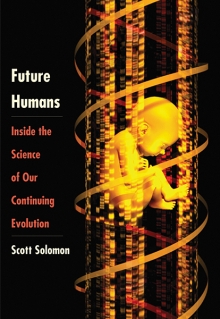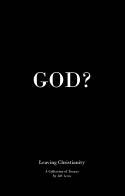The Real Story of the Resurrection (maybe)
For Easter weekend, I'm going to recycle a relevant answer I recently wrote on Quora. The question was, If Jesus wasn't resurrected, where did his physical body go? Below is my answer, with a few edits.
I just finished reading Bart Ehrman's book, How Jesus Became God : the Exaltation of a Jewish Preacher from Galilee, and Ehrman makes a good case for the empty tomb story being invented in the decades after Jesus's death, not one of the earliest Christian beliefs. In other words, there's no need to explain a mystery of what happened to Jesus's body, because there's no credible story of it ever going missing.
The earliest Christian writings in the New Testament are the seven authentic letters of Paul. Paul doesn't discuss an empty tomb in any of his writings, nor make any mention of Joseph of Arimathea. The empty tomb story doesn't show up until the gospel of Mark, which was written decades later.
Ehrman also points out that it would have been very unusual for the Roman authorities to allow a criminal who had been crucified to have a decent, private burial. The "exception that proves the rule" was that crucified criminals were allowed to be taken down during celebrations for the emperor. The author who documented this (I believe it was Philo) made a point to say that it was an unusual occurrence for such celebrations, implying that it was very uncommon, otherwise. And Passover was a Jewish holiday, and one associated with Jewish unrest towards Roman authorities, so it seems unlikely that Pilate would have made an exception in Jesus's case.
Ehrman thinks that the resurrection came to be believed originally because a few disciples and apostles had visions of Jesus after his crucifixion. Ehrman makes some attempts to stay neutral on whether or not the visions were true, but he also cited some studies showing that somewhere around 1 in 10 people claim to have had visions of deceased loved ones. Such visions aren't uncommon. In fact, doing some research on my own, I found an article about these "post-bereavement hallucinatory experiences" (PBHEs). Per the headline, Six in ten grieving people 'see or hear dead loved ones'*. (Just to be clear, these visions of the disciples were likely private visions by a few individuals, not the extensive interactions of the gospels.)
So, a plausible scenario is that Jesus was arrested and crucified in Jerusalem by the Roman governor, Pilate, because of Jesus's claims to be king (whether Jesus was talking literally or implying something more heavenly wouldn't have made much difference to Pilate). His corpse was likely treated like any other crucified criminal's - possibly left up for a period as an example, possibly with his final remains going into a mass grave. Jesus's closest followers, meanwhile, would have fled back to Galilee, and not been in Jerusalem to see the ultimate fate of Jesus's body. In Galilee, a few had visions of Jesus, and became convinced he had been resurrected. From there, legends grew up around Jesus, including the story of a specific grave subsequently found empty.
Of course, not all scholars agree with Ehrman, even among non-Christian scholars. Personally, I find Ehrman's arguments persuasive, but we're talking about an event 2000 years ago, that wouldn't have been particularly noteworthy to most people when it happened, and where the people for whom it was significant would have been illiterate and not making written records of what they saw (those written records wouldn't come for at least a few years later with Paul, and many years later with the gospels). I doubt we'll ever know for certain the exact details of what happened.
I'll add that Ehrman's interpretation makes Jesus's story incredibly heart breaking, which is especially poignant nearing Good Friday when the crucifixion is commemorated. At least in the orthodox version, Jesus was fulfilling his destiny and doing what he'd come to Earth to do. And in the mythical Jesus hypotheses, the whole crucifixion story may be made up, anyway. But thinking about an actual human preacher, arrested, tortured, and crucified, while his followers fled in fear back to their hometowns, is a very, very sad story.
*If you have access (I don't), here's the study that article was about:
Post-bereavement hallucinatory experiences: A critical overview of population and clinical studies.
For a good bit more detail, but still far short of reading the book, here's an article on Huffington Post:
How Jesus Became God
And here's an interview with Ehrman on NPR:
If Jesus Never Called Himself God, How Did He Become One?



